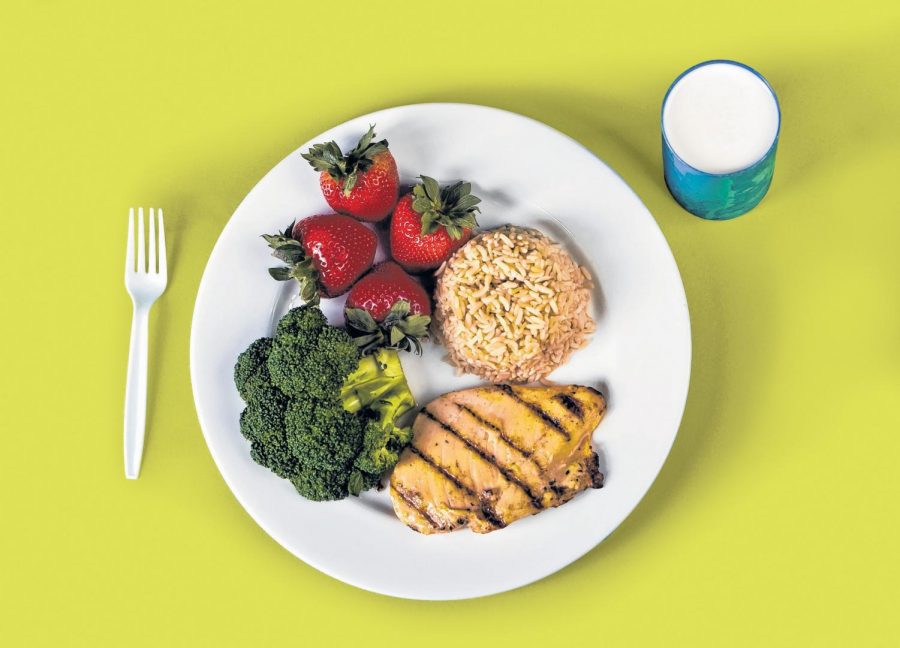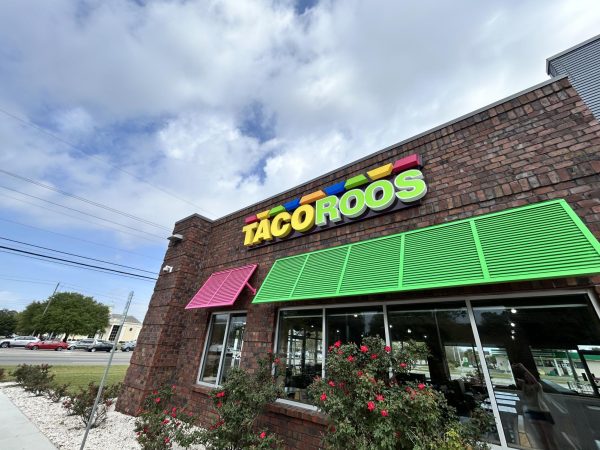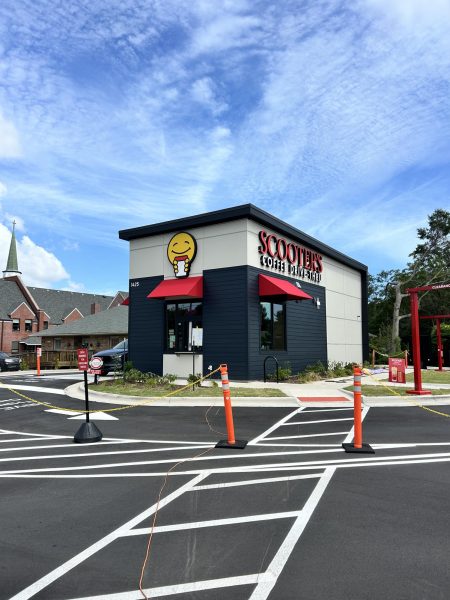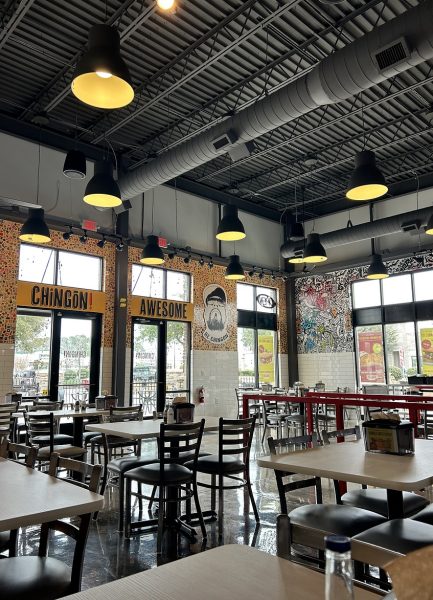Food for thought: Q&A with campus dietitian
The United States Department of Agriculture released on June 2 the MyPlate (www.myplate.gov) graphic that replaces the familiar food pyramid. It emphasizes fruit, vegetable, grains, protein and dairy foods. (Allison Long/Kansas City Star/MCT)
Eating “healthy” can be difficult for students. There are several ways to get information on healthy eating and “dieting,” like social media and the internet, but even with these outlets there are conflicting messages being portrayed. To gather information on diets, the best and most qualified person to ask is a dietitian, such as on-campus dietitian Chelsea Stant. Below is a Q&A session with Stant that busts healthy eating myths and breaks down the truth behind eating well on campus.
What services do you offer to students at UNC Wilmington?
Students can come meet with me in a one-on-one capacity to talk about their own diets and goals. I help a lot of students who are trying to lose weight, gain weight, think they are dealing with a food intolerance, are training for athletic events, don’t know how to grocery shop/cook/meal plan for themselves, etc. I like to say that I don’t help students eat healthy, I help them eat healthy without any time, energy, and/or money.
I also do a variety of programs through the Health Promotion office like Seahawk Supper, the Chef’s Table with Campus Dining, and act as a resource for our Health Promotion peer educators when they’re planning programs on nutrition or disordered eating. I work closely with Campus Dining and with our students with food allergies and intolerances, as well as with Athletics.
What are some basics that students should know about nutrition?
The MyPlate. People want to make it super difficult, but I tell my classes that when we boil down an entire semester’s worth of nutrition knowledge, those are the recommendations you get. The most important aspect of a healthy diet is that it’s flexible. Every person is different and depending on their particular situation at that time, will need different things. I think people who try to really restrict or avoid certain foods just end up craving them like crazy and overdoing it.
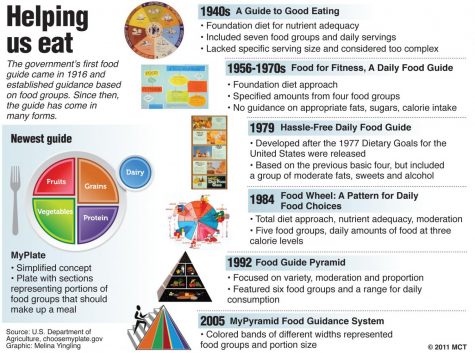
You don’t need to be scared of carbs, or fats, and we don’t need as much protein as everyone thinks. Most of what I do is think about what I’m craving, and then just try to add some fruits and veggies to it. It’s not about following a specific diet or getting certain amounts of specific nutrients, it’s about trying to eat mostly less-processed food. My husband likes to distill all of my advice into “For the most part, try to eat things that a human person made with their hands in the last day or two.”
As a dietician, what are some drawbacks that you could see from living in a situation, such as a dorm, on dietary choices?
It’s definitely harder to eat more healthfully when you’re limited in your food storage/cooking equipment. However, on the bright side, you have access to an amazing meal plan that not only enables you to eat a huge variety of healthier options, but you also don’t have to do the meal planning/grocery shopping/preparing and cleaning up part that you have to do once you move out on your own.
What are some of the more healthy options on campus out of the many eating establishments that are offered here for students?
It’s definitely easier to eat healthfully at the campus-specific locations – Wag, Dub’s, Hawks’ Nest – than the national brands like Chick-Fil-A. Just think about how you can incorporate whole grain options and adding fruits and veggies as sides and toppings. A lot of people don’t know that at Wagoner, you can take anything from any station to any other station. So you can certainly eat pizza and burgers every day, but we also have the largest salad bar in New Hanover County that you can raid for veggies to add to your omelet, stir-fry, pasta, etc.
What would you say are some health and nutrition “myths” that you run into as a dietician?
That carbs are bad, or that fats are bad, or that fats are amazing. Or that protein is the most important nutrient, or that you have to be vegan or vegetarian or restrict your eating to certain times of the day.
Please don’t drink Apple Cider Vinegar, it’s actually really dangerous for you. Smoothies and juices aren’t better than just eating fruits and vegetables that look like fruits and vegetables. I try not to eat a ton of processed food, stuff that looks like it was manufactured in a factory 6 weeks ago, but preserved foods, frozen, dried, canned, are great for college students on a limited budget with limited cooking ability.
Healthy eating is flexible. Mainly, I try to follow the MyPlate guidelines, but you better believe there are days and times where I’m just craving a cheeseburger and fries and a milkshake, or that I’m running late and can only grab a granola bar for breakfast, or I wait too long to eat and eat too much too fast- and that’s all okay! One meal isn’t going to make you unhealthy just like one meal won’t make you healthy.
I’m also starting to see this idea everywhere that if you just eat a certain way, that you won’t develop high blood pressure/diabetes/heart disease/cancer, etc. This idea that healthy eating can completely prevent illness.
Healthy eating is definitely an important component to overall health, but it can’t take the place of actual medicine and works in conjunction with exercise, stress management, recommended screenings and other preventative health routines to help reduce our risk for becoming ill, but there aren’t any guarantees. You can do everything “right” and still develop or deal with illness. also along these lines, just because someone on Instagram eats and exercises a certain way does not mean that you’ll look that way if you do those things.
What tips could you give to students overall about maintaining a healthy lifestyle?
Healthy eating is all about doing what you can, when you can. For a lot of college students, it’s not feasible for them to purchase and prepare a ton of fresh, raw, organic fruits and vegetables every week. I encourage a lot of students to see if they can just try to be one percent healthier.
If you like burgers, get a burger, just add lettuce, tomato, and onion to it, or get an apple on the side instead of fries. If you can’t wake up early enough to prepare a solid breakfast, eat a granola bar or PB&J sandwich, or a leftover piece of pizza. If you can’t take the time to prepare fresh fruits and veggies, by all means, use the frozen steamable options. And be gentle and forgiving with yourself!
Food is one of the great joys in life, and I’m never going to tell someone that they can’t eat something ever again. Just like forgetting to brush my teeth one night won’t give me cavities, eating one less nutritious meal isn’t automatically going to make me unhealthy.


